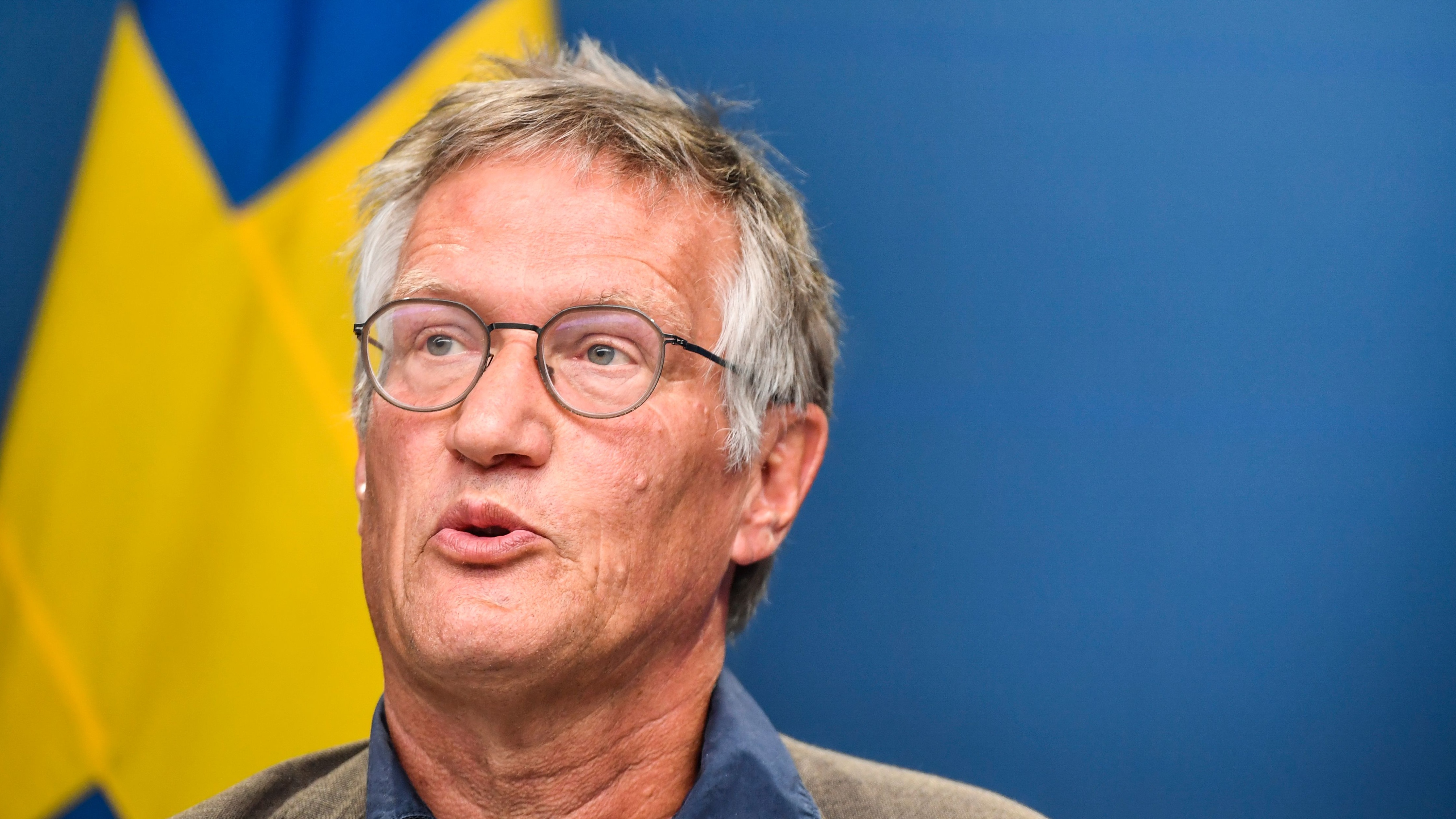Will vaccines sound the death knell for Sweden’s Covid experiment?
Herd immunity will require fewer sacrifices if it can be achieved with an effective vaccination programme

A free daily email with the biggest news stories of the day – and the best features from TheWeek.com
You are now subscribed
Your newsletter sign-up was successful
Back in March, as Sweden embarked on a uniquely open approach to the coronavirus pandemic - and its death toll began to rise - state epidemiologist Anders Tegnell (pictured) urged the rest of the world to reserve judgement.
“In the autumn there will be a second wave,” he said. “Sweden will have a high level of immunity and the number of cases will probably be quite low.”
For a time, it looked as if he might be vindicated. In September, the Swedish policy of keeping the economy open while asking people to reduce social interaction was “beginning to gain traction elsewhere in Europe”, The National reported.
The Week
Escape your echo chamber. Get the facts behind the news, plus analysis from multiple perspectives.

Sign up for The Week's Free Newsletters
From our morning news briefing to a weekly Good News Newsletter, get the best of The Week delivered directly to your inbox.
From our morning news briefing to a weekly Good News Newsletter, get the best of The Week delivered directly to your inbox.
Sweden was recording fewer than 300 new cases of Covid-19 per day, “compared with thousands in other European countries such as Britain, France and Spain”, the paper adds. “Its average number of deaths [was] one a day.” And Swedes had benefited from the business-as-usual approach to schooling, socialising and health services.
As autumn turns to winter, however, the calculus has changed again. Cases are on the rise and more people are dying in Sweden than in its Nordic neighbours (although Sweden’s current mortality rate is below Germany’s and less than a tenth of Belgium’s).
The big shift, though, is the promise that herd immunity might soon be achieved through artificial means.
“As half a dozen vaccines draw into sight,” says The Times, “it is at last possible to set down the rudiments of a meaningful judgment on the strategy.” And Swedish critics of their country’s approach “believe it is finally clear that their country has paid far too high a price for too few tangible results”, the paper reports.
A free daily email with the biggest news stories of the day – and the best features from TheWeek.com
Even Tegnell himself seems to be having second thoughts. “Throughout history there has up to now been no infectious disease whose transmission was fully halted by herd immunity without a vaccine,” he recently told the German newspaper Der Spiegel.
Fortunately for Swedes - and the rest of us - we won’t have to find out if Covid-19 could have been the first.
Holden Frith is The Week’s digital director. He also makes regular appearances on “The Week Unwrapped”, speaking about subjects as diverse as vaccine development and bionic bomb-sniffing locusts. He joined The Week in 2013, spending five years editing the magazine’s website. Before that, he was deputy digital editor at The Sunday Times. He has also been TheTimes.co.uk’s technology editor and the launch editor of Wired magazine’s UK website. Holden has worked in journalism for nearly two decades, having started his professional career while completing an English literature degree at Cambridge University. He followed that with a master’s degree in journalism from Northwestern University in Chicago. A keen photographer, he also writes travel features whenever he gets the chance.
-
 5 cinematic cartoons about Bezos betting big on 'Melania'
5 cinematic cartoons about Bezos betting big on 'Melania'Cartoons Artists take on a girlboss, a fetching newspaper, and more
-
 The fall of the generals: China’s military purge
The fall of the generals: China’s military purgeIn the Spotlight Xi Jinping’s extraordinary removal of senior general proves that no-one is safe from anti-corruption drive that has investigated millions
-
 Why the Gorton and Denton by-election is a ‘Frankenstein’s monster’
Why the Gorton and Denton by-election is a ‘Frankenstein’s monster’Talking Point Reform and the Greens have the Labour seat in their sights, but the constituency’s complex demographics make messaging tricky
-
 A Nipah virus outbreak in India has brought back Covid-era surveillance
A Nipah virus outbreak in India has brought back Covid-era surveillanceUnder the radar The disease can spread through animals and humans
-
 Covid-19 mRNA vaccines could help fight cancer
Covid-19 mRNA vaccines could help fight cancerUnder the radar They boost the immune system
-
 The new Stratus Covid strain – and why it’s on the rise
The new Stratus Covid strain – and why it’s on the riseThe Explainer ‘No evidence’ new variant is more dangerous or that vaccines won’t work against it, say UK health experts
-
 RFK Jr. vaccine panel advises restricting MMRV shot
RFK Jr. vaccine panel advises restricting MMRV shotSpeed Read The committee voted to restrict access to a childhood vaccine against chickenpox
-
 RFK Jr. scraps Covid shots for pregnant women, kids
RFK Jr. scraps Covid shots for pregnant women, kidsSpeed Read The Health Secretary announced a policy change without informing CDC officials
-
 New FDA chiefs limit Covid-19 shots to elderly, sick
New FDA chiefs limit Covid-19 shots to elderly, sickspeed read The FDA set stricter approval standards for booster shots
-
 RFK Jr.: A new plan for sabotaging vaccines
RFK Jr.: A new plan for sabotaging vaccinesFeature The Health Secretary announced changes to vaccine testing and asks Americans to 'do your own research'
-
 Five years on: How Covid changed everything
Five years on: How Covid changed everythingFeature We seem to have collectively forgotten Covid’s horrors, but they have completely reshaped politics